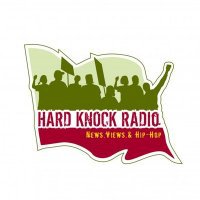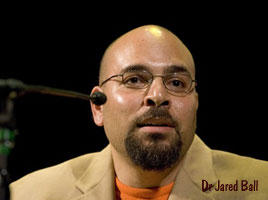With President Barack Obama in the White House and more than 2/3 of the voters between the ages of 18-40 (the Hip Hop generation) voting for him, many are celebrating and talking about the political power and social movement potential of Hip Hop. Is Hip Hop a Movement?
That’s the question we been asking from coast to coast. If it is a movement how is that manifested? Is there a political agenda or does it even need one? Some say the movement is centered around the music and dance aspects and that Hip Hop has managed to bring people of all races and all creeds around one proverbial campfire.
Others are saying that because Obama had Hip Hop super stars like Jay-Z and Will I am playing key roles in exciting voters and getting them to the poles, is proof that Hip Hop is a Movement.
Others say such activities is not a movement but a clever marketing strategy. In fact getting a president into office is not a movement-Having day to day political capital and people in office being accountable to you on local levels is what makes a movement. It’s been pointed out that if Hip Hop played such a crucial role in getting President Obama into the White House where is the payback? Has been addressing issues held dear by the Hip Hop generation? Does he have someone who understands the Hip Hop community in his cabinet? What sort of money is being directed to Hip Hop organizations in the latest stimulus packages?
We assembled a number of people ranging from Chuck D of Public Enemy to former Green Party Vice Presidential candidate Rosa Clemente to Professor Jared Ball to Hip Hop icons Paradise Gray of X-Clan and a host of others to tackle this question. Is Hip Hop a Movement? Take a look at the videos and weigh in.
We also show how Hip Hop folks are out and about making things happen. Some of what we depict are folks like Shamako Noble of Hip Hop Congress helping lead a Poor People’s march to Oakland rapper D’Labrie stirring up a crowd at a Get out to Vote rally to Baltimore rapper Labtekwon freestyling on a street about consciousness raising. The clips and corresponding links are shown below. Enjoy
Is Hip Hop a Movement? pt1
http://www.youtube.com/wat
We speak w/ former rapper Khari Mosley who is a member of One Hood out of Pittsburgh, Pa and an elected official who also heads up the League of Young Voters field operations & Dr Jared Ball who ran for Green Party Presidential nominee and does the FreeMix Mixtapes who offer up differing opinions on this topic on Hip Hop
Is Hip Hop a Movement? pt2
http://www.youtube.com/wat
We continue our conversation about Hip Hop being a movement. Here we talk to two veterans of the Civil Rights Movements and the Black Power Movements. One is DJ Paradise of the legendary group X-Clan. Paradise was part of the Blackwatch Movement which fought for social justice. He was also a part of the Black Spades street gang at a time when Afrika Bambaataa was transforming it and moving it in a direction where members took on community responsibility.
We also talk with Fred Rush who is the deputy mayor of Erie, Pa. He is a civil rights vet who at age 15 went to the historic March on Washington where Dr Martin Luther King delivered his ‘I Have a Dream’ speech. He contrasts the Hip Hop Movement with the Civil Rights Movement and explains what is needed in order to have a successful movement
Is Hip Hop a Movement? pt3
http://www.youtube.com/wat
Our discussion continues w/ TJ Crawford who put together the National Hip Hop Political Convention in Chicago 2006. We also talk with Rev Lennox Yearwood who heads up the Washington DC based Hip Hop Caucus. We also hear from rapper Haitian Fresh-who is defining the Hip Hop Movement for him and his fans. Where do u stand on this?
Is Hip Hop a Movement? pt4
http://www.youtube.com/wat
We continue our discussion by breaking bread w/ Baltimore rapper Omar Akbar aka Labtekwon. We also talk w/ Shamako Noble & D’Labrie of Hip Hop Congress and see them in action fighting for social justice.
Is Hip Hop a Movement? We Interview Chuck D of Public Enemy
http://www.youtube.com/wat
We sat down w/ Public Enemy front man Chuck D and asked him to weigh in on the question of ‘Is Hip Hop a Movement? He tells us about the world wide impact of this culture and explains what we need to consider when answering this question.
Is Hip Hop a Movement? Hip Hop activist Rosa Clemente Speaks
http://www.youtube.com/wat
Long time Hip Hop activists and former VP Green Party candidate Rosa Clemente sat with us and gave us her take on Hip Hop and it’s political relevance. She offers us up a cold dose of reality and asks some very hard questions




 It’s always a pleasure to chop it up with author, former Black Panther and political prisoner
It’s always a pleasure to chop it up with author, former Black Panther and political prisoner  Dhoruba talked about the rise of a police state where the stripping of constitutional rights would seem normal to a beleaguered population. He also talked about what sort of things we could expect slave ascends to the slave masters house including increased oppression not just from outside forces angry at a Blackening and Browning America, but also from President Obama himself and interests he represents. Dhoruba notes that Obama is part of a larger scenario (the American Empire) where Black faces are used to get the masses to buy back into an imperialistic system versus oppose it..
Dhoruba talked about the rise of a police state where the stripping of constitutional rights would seem normal to a beleaguered population. He also talked about what sort of things we could expect slave ascends to the slave masters house including increased oppression not just from outside forces angry at a Blackening and Browning America, but also from President Obama himself and interests he represents. Dhoruba notes that Obama is part of a larger scenario (the American Empire) where Black faces are used to get the masses to buy back into an imperialistic system versus oppose it..


 Soon President Obama was winning the nomination, and it was all but sure that the Hip Hop vote would lean in his direction. It was a legitimate position at the time, because every rapper and there mom were taking photo ops with the soon to be President. My position on Obama at the time can be found here (
Soon President Obama was winning the nomination, and it was all but sure that the Hip Hop vote would lean in his direction. It was a legitimate position at the time, because every rapper and there mom were taking photo ops with the soon to be President. My position on Obama at the time can be found here (







